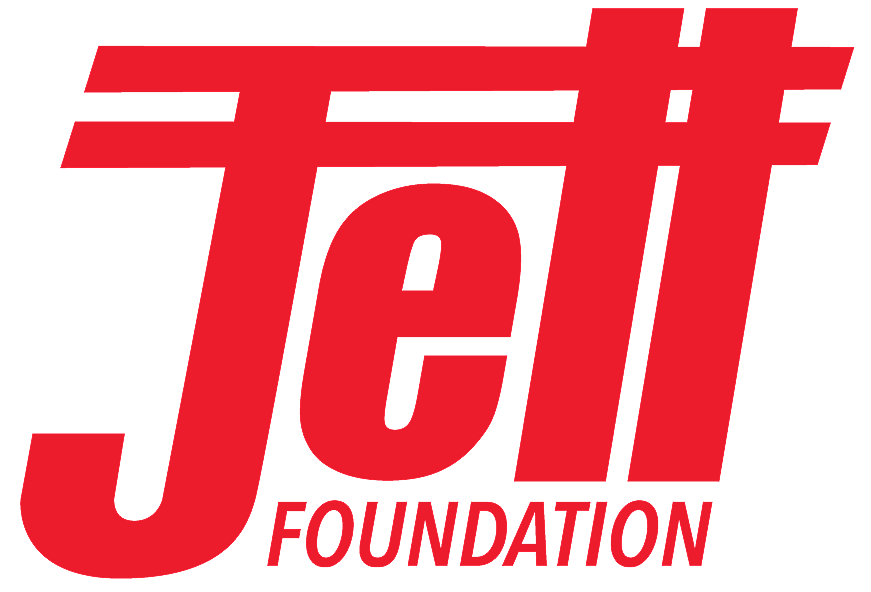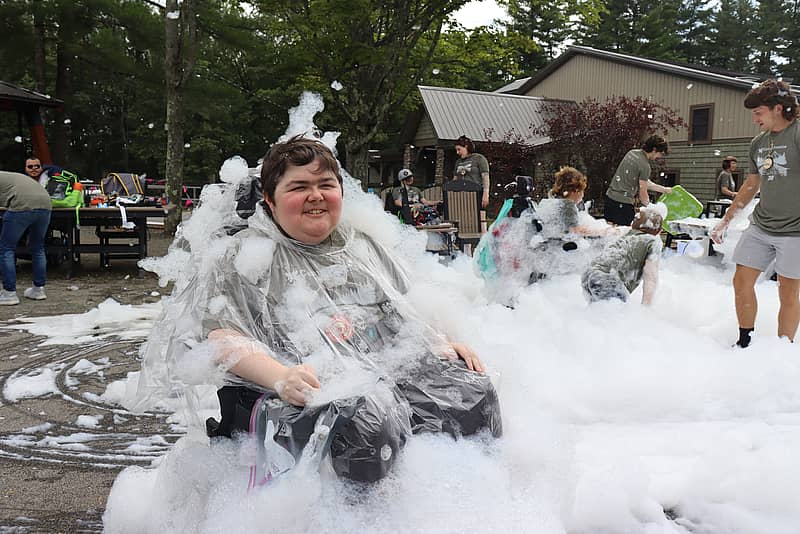
Sarepta Therapeutics recently signed an agreement with Hansa Biopharma which enables them to use imlifidase. This exclusive worldwide license will permit Sarepta to develop and advance imlifidase as a treatment option for patients affected by muscular dystrophy. Below you can find their press release. To see the full press release on their website, please click here.
SAREPTA THERAPEUTICS SIGNS AGREEMENT WITH HANSA BIOPHARMA FOR IMLIFIDASE
07/02/20 7:00 AM EDT
— Exclusive worldwide license enables Sarepta to develop and promote imlifidase as a pre-treatment for gene therapy in Duchenne and Limb-girdle muscular dystrophy patients who have pre-existing antibodies to AAV —
CAMBRIDGE, Mass., July 02, 2020 (GLOBE NEWSWIRE) — Sarepta Therapeutics, Inc. (NASDAQ:SRPT), the leader in precision genetic medicine for rare diseases, today announced an agreement with Hansa Biopharma, the leader in immunomodulatory enzyme technology for rare Immunoglobulin G (IgG) mediated diseases, for imlifidase. Under the terms of the agreement, Sarepta obtains an exclusive, worldwide license to develop and promote imlifidase as a pre-treatment to enable Sarepta gene therapy administration in Duchenne muscular dystrophy (DMD) and Limb-girdle muscular dystrophy (LGMD), for patients who may otherwise not be eligible for treatment.
Sarepta’s investigational gene therapies use an adeno-associated virus (AAV) and patients with Duchenne and LGMD who have pre-existing IgG antibodies are not currently eligible for treatment with any AAV-based gene therapies. Imlifidase is an antibody-cleaving enzyme that specifically targets IgG and inhibits an IgG-mediated immune response. Imlifidase has a rapid onset of action, cleaving IgG-antibodies and inhibiting their reactivity within hours after administration, thus clearing the AAV-IgG antibodies that would typically preclude dosing or re-dosing with AAV.
“As we expand our leadership position in genetic medicine and build out our gene therapy engine, one of Sarepta’s central ambitions is to find scientific solutions that bring our potentially life-saving therapies to the greatest number of the rare disease patients we serve,” said Doug Ingram, president and chief executive officer, Sarepta Therapeutics. “One of the current limitations of gene therapy is the inability to treat patients who have pre-existing neutralizing antibodies to the AAV vector. While our AAVrh74 vector has been associated with a low screen out rate for neutralizing antibodies, even that low rate is inconsistent with our mission. In pre-clinical and clinical models, Hansa’s technology has shown the ability to clear the IgG antibodies that prevent dosing AAV-based gene therapies. If successful, this could offer the potential of extending our gene therapy treatments to DMD and LGMD patients who would otherwise have been denied access due to pre-existing antibodies.”
“We see significant potential for our enzyme technology in the gene therapy space overall, and we are excited to partner with Sarepta, a leading player in the field, to use the unique features of imlifidase to potentially enable gene therapy treatment in patients who today aren’t eligible for these breakthrough therapies due to pre-existing neutralizing antibodies in two conditions with a very high unmet medical need,” said Søren Tulstrup, president and chief executive officer, Hansa Biopharma.
Under the terms of the agreement, Hansa will receive an upfront payment of $10 million and is eligible for additional development, regulatory and sales milestone payments potentially totaling up to $397.5 million. Hansa will book all sales of imlifidase and will earn tiered royalties up to the mid-teens on any incremental gene therapy sales that arise from treating antibody-positive patients enabled through imlifidase pre-treatment.
About Duchenne Muscular Dystrophy
(DMD) is a rare, fatal neuromuscular genetic disease that occurs in approximately one in every 3,500-5,000 males worldwide. DMD is caused by a change or mutation in the gene that encodes instructions for dystrophin. Symptoms of DMD usually appear in infants and toddlers. Affected children may experience developmental delays such as difficulty in walking, climbing stairs or standing from a sitting position. As the disease progresses, muscle weakness in the lower limbs spreads to the arms, neck and other areas. Most patients require full-time use of a wheelchair in their early teens, and then progressively lose the ability to independently perform activities of daily living such as using the restroom, bathing and feeding. Eventually, increasing difficulty in breathing due to respiratory muscle dysfunction requires ventilation support, and cardiac dysfunction can lead to heart failure. The condition is universally fatal, and patients usually succumb to the disease in their twenties.
About Limb-Girdle Muscular Dystrophy
Limb-girdle muscular dystrophies are genetic diseases that cause progressive, debilitating weakness and wasting that begin in muscles around the hips and shoulders before progressing to muscles in the arms and legs.
Patients with limb-girdle muscular dystrophy Type 2E (LGMD2E) begin showing neuromuscular symptoms such as difficulty running, jumping and climbing stairs before age 10. The disease, which is an autosomal recessive subtype of LGMD, progresses to loss of ambulation in the teen years and often leads to early mortality. There is currently no treatment or cure for LGMD2E.
Sarepta has five LGMD gene therapy programs in development, including subtypes for LGMD2E, LGMD2D, LGMD2C, LGMD2B and LGMD2L, and holds an option for a sixth program for LGMD2A.
Forward-Looking Statement
This press release contains “forward-looking statements.” Any statements contained in this press release that are not statements of historical fact may be deemed to be forward-looking statements. Words such as “believes,” “anticipates,” “plans,” “expects,” “will,” “intends,” “potential,” “possible” and similar expressions are intended to identify forward-looking statements. These forward-looking statements include statements regarding the parties’ obligations and responsibilities under the agreement and potential payments and fees; the potential of imlifidase to clear the IgG antibodies that prevent dosing AAV-based gene therapies and to enable Sarepta gene therapy administration in DMD and LGMD patients who would otherwise have been denied access due to pre-existing antibodies; and Sarepta’s goal of finding scientific solutions that bring its potentially life-saving therapies to the greatest number of the rare disease patients it serves.
These forward-looking statements involve risks and uncertainties, many of which are beyond Sarepta’s control. Known risk factors include, among others: the expected benefits and opportunities related to the collaboration between Sarepta and Hansa Biopharma may not be realized or may take longer to realize than expected due to challenges and uncertainties inherent in product research and development. In particular, the collaboration may not result in any viable treatments suitable for commercialization due to a variety of reasons, including any inability of the parties to perform their commitments and obligations under the agreement; success in preclinical and early clinical trials does not ensure that later clinical trials will be successful; Sarepta may not be able to execute on its business plans and goals, including meeting its expected or planned regulatory milestones and timelines, clinical development plans, and bringing its product candidates to market, due to a variety of reasons, many of which may be outside of Sarepta’s control, including possible limitations of company financial and other resources, manufacturing limitations that may not be anticipated or resolved for in a timely manner, regulatory, court or agency decisions, such as decisions by the United States Patent and Trademark Office with respect to patents that cover Sarepta’s product candidates and the COVID-19 pandemic; and even if Sarepta’s programs result in new commercialized products, Sarepta may not achieve the expected revenues from the sale of such products; and those risks identified under the heading “Risk Factors” in Sarepta’s most recent Annual Report on Form 10-K for the year ended December 31, 2019, and most recent Quarterly Report on Form 10-Q filed with the Securities and Exchange Commission (SEC) as well as other SEC filings made by Sarepta which you are encouraged to review.
Any of the foregoing risks could materially and adversely affect Sarepta’s business, results of operations and the trading price of Sarepta’s common stock. For a detailed description of risks and uncertainties Sarepta faces, you are encouraged to review the SEC filings made by Sarepta. We caution investors not to place considerable reliance on the forward-looking statements contained in this press release. Sarepta does not undertake any obligation to publicly update its forward-looking statements based on events or circumstances after the date hereof.
About Sarepta Therapeutics
At Sarepta, we are leading a revolution in precision genetic medicine and every day is an opportunity to change the lives of people living with rare disease. The Company has built an impressive position in Duchenne muscular dystrophy (DMD) and in gene therapies for limb-girdle muscular dystrophies (LGMDs), mucopolysaccharidosis type IIIA, Charcot-Marie-Tooth (CMT), and other CNS-related disorders, with more than 40 programs in various stages of development. The Company’s programs and research focus span several therapeutic modalities, including RNA, gene therapy and gene editing. For more information, please visit www.sarepta.com or follow us on Twitter, LinkedIn, Instagram and Facebook.
Internet Posting of InformationWe routinely post information that may be important to investors in the ‘For Investors’ section of our website at www.sarepta.com. We encourage investors and potential investors to consult our website regularly for important information about us.
Source: Sarepta Therapeutics, Inc.
Sarepta Therapeutics, Inc.
Investors:
Ian Estepan, 617-274-4052
iestepan@sarepta.com
Media:
Tracy Sorrentino, 617-301-8566
tsorrentino@sarepta.com






